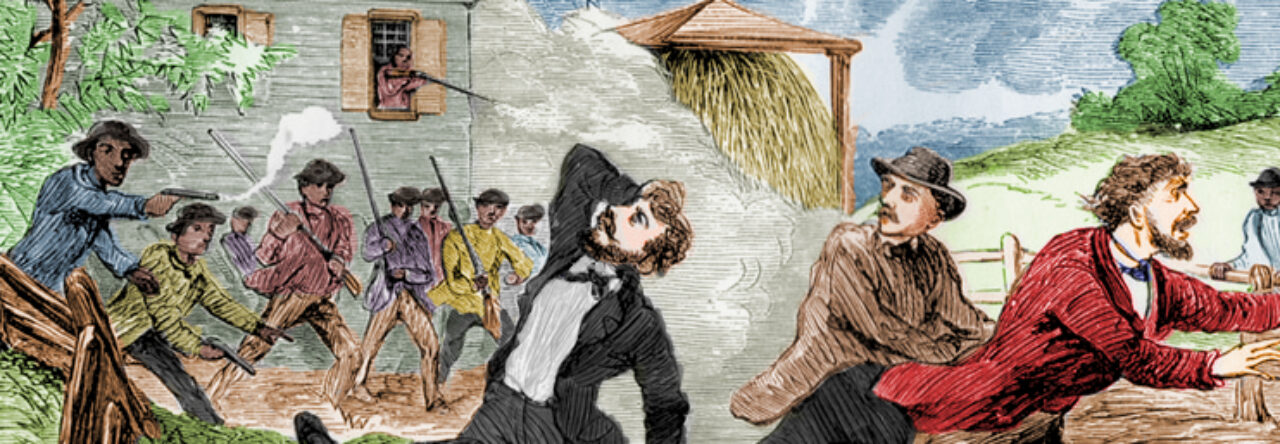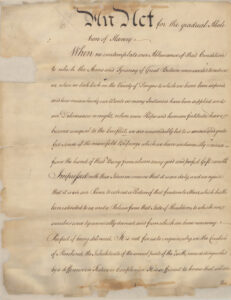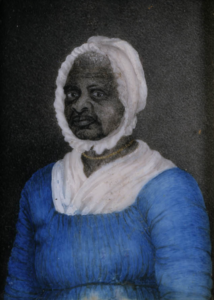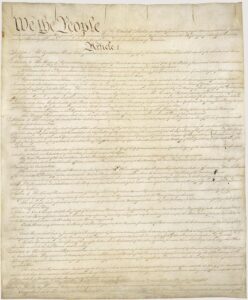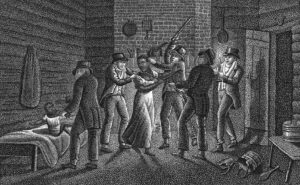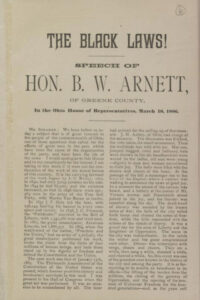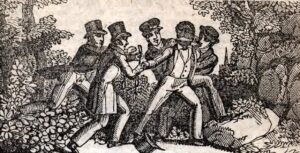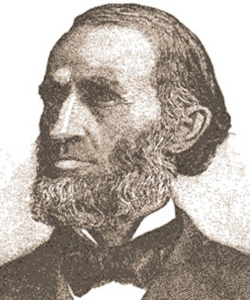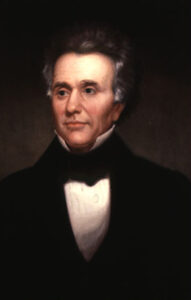Citation
1793 Fugitive Slave Act, February 12, 1793, FULL TEXT via A Century of Lawmaking, Library of Congress
Excerpt
Sec. 1. Be it enacted by the Senate and House of Representatives of the United States of America in Congress assembled, That whenever the executive authority of any State in the Union, or of either of the territories northwest or south of the river Ohio, shall demand any person as a fugitive from justice, of the executive authority of any such state or territory to which such person shall have fled, and shall moreover produce the copy of an indictment found, or an affidavit made before a magistrate of any state or territory as aforesaid, charging the person so demanded, with having committed treason, felony or other crime, certified as authentic by the governor or chief magistrate of the state or territory from whence the person so charged, fled, it shall be the duty of the executive authority of the state or territory to which such person shall have fled, to cause him or her to be arrested and secured, and notice of the arrest to be given to the executive authority making such demand, or to the agent of such authority appointed to receive the fugitive, and to cause the fugitive to be delivered to such agent when he shall appear: But if no such agent shall appear within six mouths from the time of the arrest, the prisoner may be discharged. And all costs or expenses incurred in the apprehending, securing, and transmitting such fugitive to the elate or territory making such demand, shall be paid by such state or territory.
Sec. 4. And be it further enacted, That any person who shall knowingly and willingly obstruct or hinder such claimant, his agent or attorney when so arrested pursuant to the authority herein given or declared: or shall harbor or conceal such person after notice that he or she was a fugitive from labor, as aforesaid, shall, for either of the said offences, forfeit and pay the sum of five hundred dollars. Which penalty may be recovered by and fur the benefit of such claimant, by action of debt, in any court proper to try the same; saving moreover to the person claiming such labor or service, his right of action for or on account of the said injuries or either of them.
Key Cases under the 1793 Fugitive Slave Act
Related Essays

